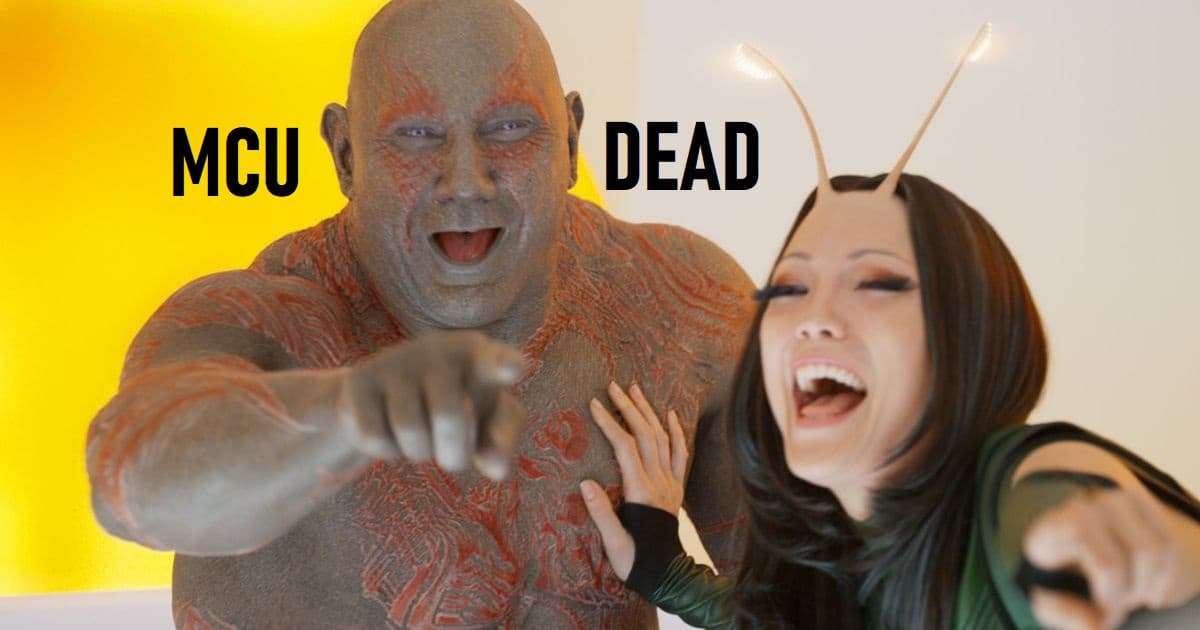The Marvel Cinematic Universe (MCU) has been a cultural phenomenon like no other in the world of entertainment. It emerged as a groundbreaking example of how a shared cinematic universe could captivate audiences and dominate the box office. However, in recent years, the MCU has faced growing challenges, raising questions about its sustainability and creative direction. In this article, we will delve into the rise, current state, and challenges of the MCU, exploring what the future might hold for this iconic franchise.
The MCU’s Ascension: From Darling to Cautionary Tale
The MCU’s journey from a risky cinematic experiment to a global powerhouse is nothing short of remarkable. It began with “Iron Man” in 2008, a film that not only introduced audiences to Tony Stark but also laid the foundation for an interconnected universe. The creation of the MCU marked a pivotal moment in the history of cinema, where storytelling transcended individual films to weave a grand narrative across multiple movies.
Table: MCU Phase One Films
| Film Title | Release Year |
|---|---|
| Iron Man | 2008 |
| The Incredible Hulk | 2008 |
| Iron Man 2 | 2010 |
| Thor | 2011 |
| Captain America: The First Avenger | 2011 |
| The Avengers | 2012 |
The success of “The Avengers” in 2012 solidified the MCU’s position as a cinematic juggernaut. It was a groundbreaking moment, as superheroes from different films joined forces in a massive crossover event. Audiences were captivated by the interconnected storytelling, witty dialogues, and epic battles.
A Shift in Fortune: The Current State of the MCU
While the MCU continues to be a formidable force, it has experienced a noticeable shift in recent times. The once-unassailable franchise is facing challenges on multiple fronts, prompting discussions about its future direction.
Table: MCU Phase Four Films
| Film Title | Release Year |
|---|---|
| WandaVision | 2021 |
| The Falcon and The Winter Soldier | 2021 |
| Loki | 2021 |
| Black Widow | 2021 |
| Shang-Chi and the Legend of the Ten Rings | 2021 |
| Eternals | 2021 |
| Spider-Man: No Way Home | 2021 |
1. Streaming Service Experimentation: Disney’s foray into the streaming service arena with Disney+ has had a notable impact on the MCU. While it aimed to boost Disney+ subscriptions with MCU TV shows, not all of them have garnered the expected viewership. “Miss Marvel,” for instance, pulled in less than a million viewers in its debut week, raising concerns about the ROI on these high-budget series.
2. Quality and Direction: Many argue that the MCU’s storytelling has taken a hit. The transition from grand cinematic experiences to episodic television shows has altered the pacing and depth of storytelling. Some of the latest MCU offerings have been criticized for their predictable writing, stale humor, and reliance on formulaic tropes.
3. Diminishing Returns: While films like “Spider-Man: No Way Home” continue to enjoy success, other recent MCU releases have underperformed. “Black Panther: Wakanda Forever” and “Thor: Love and Thunder” failed to reach the billion-dollar mark. “Ant-Man and the Wasp: Quantumania” even incurred a box office loss.
4. Oversaturation: The MCU’s aggressive release schedule, coupled with the expansion into streaming content, has led to oversaturation. The sheer volume of content makes it challenging for fans to keep up, potentially diluting the impact of each release.
The Multiverse Quandary
One significant factor contributing to the MCU’s current challenges is the introduction of the Multiverse concept. While it was intended to provide creative flexibility, it has also introduced a set of problems.
1. Reduced Stakes: In a Multiverse, where anything can happen, the concept of stakes diminishes. Character deaths become less meaningful, as there are infinite versions of characters. This affects the emotional investment of the audience.
2. Lazy Writing: The Multiverse can inadvertently lead to lazy storytelling. Instead of crafting intricate narratives, writers may resort to easy fixes by introducing alternate versions of characters or altering timelines.
3. Delayed X-Men Integration: The Multiverse has delayed the integration of popular characters like the X-Men into the MCU. Fans have been eager to see these beloved mutants in the MCU, but contractual obligations have pushed their arrival to a later date.
The Search for a New Leader
A crucial aspect of the MCU’s success has been the presence of a central figure or character who anchors the franchise. Tony Stark’s Iron Man played this role for the first three phases, providing a consistent and charismatic presence. However, with Iron Man’s departure, the MCU faces the challenge of finding a suitable replacement.
Table: Potential Replacement Characters
| Character | Qualities |
|---|---|
| Reed Richards | Intellect, leadership, and scientific prowess |
| Wolverine | Iconic popularity and complex character |
| Doctor Doom | Complex villain with leadership potential |
While several characters could potentially fill this role, it’s essential to consider the qualities and charisma necessary to lead the MCU effectively.
The Way Forward
The MCU, despite its recent challenges, remains a powerhouse in the world of entertainment. To continue thriving, it must address its creative direction, quality control, and the oversaturation of content. A renewed focus on storytelling and character development will be crucial in retaining the audience’s interest.
Table: Upcoming MCU Projects
| Project Name | Release Year |
|---|---|
| Thor: Love and Thunder | 2022 |
| Doctor Strange in the Multiverse of Madness | 2022 |
| Black Panther: Wakanda Forever | 2022 |
| The Marvels (Captain Marvel 2) | 2023 |
| Guardians of the Galaxy Vol. 3 | 2023 |
| Ant-Man and the Wasp: Quantumania | 2023 |
The MCU has a lineup of upcoming projects that will shape its future. It’s imperative that these films and series strike a balance between innovation and maintaining the essence of what made the MCU a cultural phenomenon in the first place.
In conclusion, the MCU has reached a critical juncture in its evolution. While it faces challenges and uncertainties, it has the potential to reinvent itself and continue to be a beloved part of pop culture. The introduction of compelling characters, engaging storytelling, and a strategic approach to content release will be key to the MCU’s longevity and relevance in the years to come.













